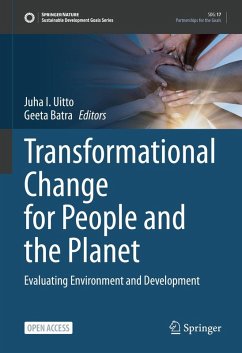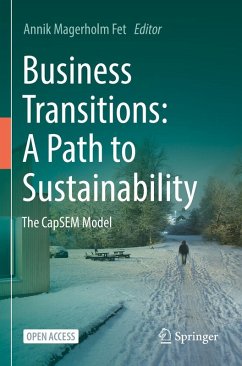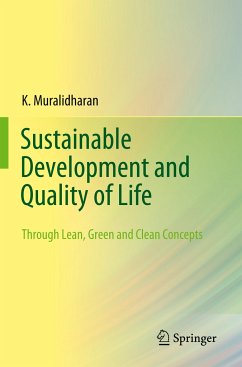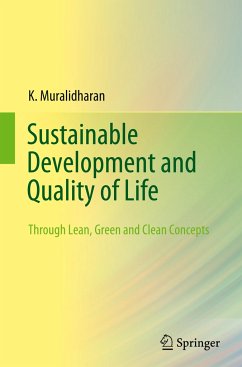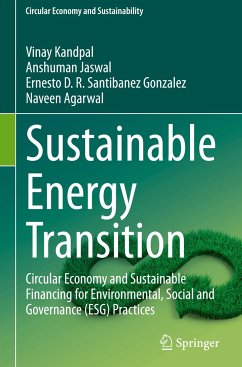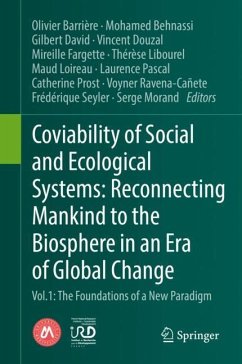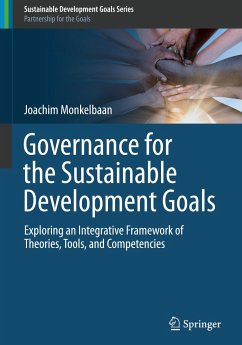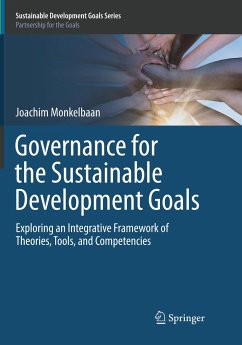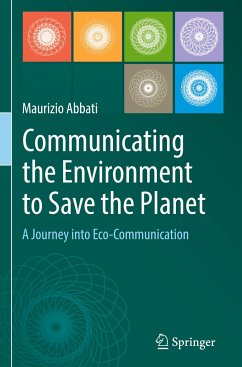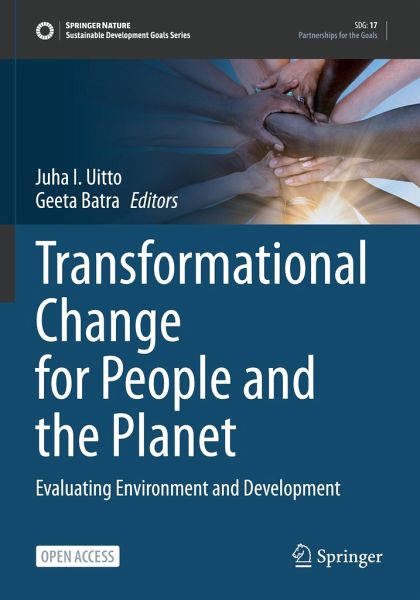
Transformational Change for People and the Planet
Evaluating Environment and Development
Herausgegeben: Uitto, Juha I.; Batra, Geeta
Versandkostenfrei!
Versandfertig in 6-10 Tagen
31,99 €
inkl. MwSt.

PAYBACK Punkte
16 °P sammeln!
This Open Access book deals with the pressing question of how to achieve transformational change that reconciles development with environmental sustainability. It particularly focuses on the role of evaluation in finding sustainable solutions. Environment and development are closely interlinked, as are human health and ecosystem health. The pandemic that began in 2020 demonstrated in no uncertain terms how destruction of habitats has allowed hitherto unknown pathogens spill over to humans wreaking havoc on people's lives and livelihoods. We are already seeing the impacts of global climate chan...
This Open Access book deals with the pressing question of how to achieve transformational change that reconciles development with environmental sustainability. It particularly focuses on the role of evaluation in finding sustainable solutions. Environment and development are closely interlinked, as are human health and ecosystem health. The pandemic that began in 2020 demonstrated in no uncertain terms how destruction of habitats has allowed hitherto unknown pathogens spill over to humans wreaking havoc on people's lives and livelihoods. We are already seeing the impacts of global climate change in terms of heatwaves, forest fires and increased storms. The Sustainable Development Goals (SDGs) explicitly recognize the equal importance of the social, economic and environmental dimensions of development. In these turbulent times, when humankind faces multiple complex challenges it is essential to know that our responses are effective and that they make a positive difference. Evaluationcan provide invaluable lessons to how we design policies, strategies and programs and how we allocate limited resources between competing priorities. This book brings together key thinkers and practitioners from the public and private sectors, from major multilateral organizations and from bilateral donor agencies, to present the latest knowledge and experience on how to evaluate interventions in the nexus of environment and development. The book does not promote any particular approach or methodology, but rather emphasizes the need for mixed methods to address the question at hand in the best and most suitable manner. It covers cases from a variety of fields, from climate change mitigation and adaptation, energy efficiency and renewable energy, natural resources management, biodiversity conservation and more.
This book is not a conference proceedings although it has its roots in the Third International Conference on Evaluating Environment and Development organized by the GEF Independent Evaluation Office in October 2019. The conference brought together a larger number of established and upcoming evaluators, researchers and evaluation users from the Global North and South, representing a wide variety of organizations, to discuss the frontiers of environment and development evaluation. Following the conference, the editors identified and contacted the participants who made key contributions at the conference and asked them to develop their ideas and papers into book chapters according to a coherent plan.
This book is not a conference proceedings although it has its roots in the Third International Conference on Evaluating Environment and Development organized by the GEF Independent Evaluation Office in October 2019. The conference brought together a larger number of established and upcoming evaluators, researchers and evaluation users from the Global North and South, representing a wide variety of organizations, to discuss the frontiers of environment and development evaluation. Following the conference, the editors identified and contacted the participants who made key contributions at the conference and asked them to develop their ideas and papers into book chapters according to a coherent plan.



